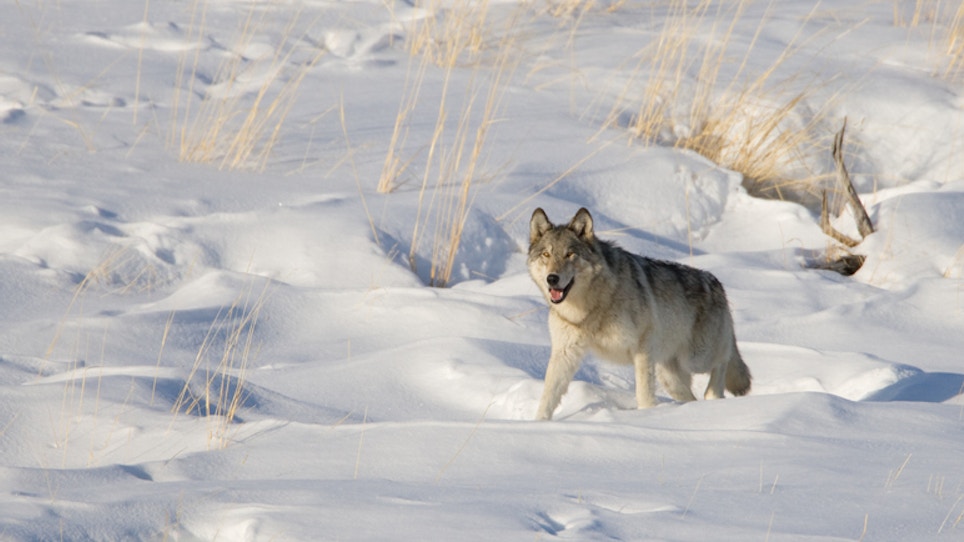
Hunters in the Badger State killed more than 200 gray wolves during the February season. (Photo: istockphoto.com/KenCanning)
If Wisconsin hunters and trappers proved anything in February, it was that wolves are abundant in the Badger State. So much so that they were able to kill more than 200 of the apex predators in less than 72 hours, which represents less than 20 percent of the burgeoning population estimated at well over 1,000 wolves. According to the DNR, 86 percent of the wolves killed were shot by hunters using dogs, while 5 percent were killed by trappers and 9 percent by other means, such as hunting over bait during the state’s first wolf season since 2014.
In response to the removal of gray wolves from the federal endangered species list on Jan. 4, 2021, by the U.S. Fish and Wildlife Service, the Wisconsin DNR quickly initiated a February season designed to remove 200 wolves from the state’s growing population — including Native Americans’ share of the harvest under treaty rights. The Wisconsin Natural Resources Board voted unanimously to authorize the gray wolf hunting and trapping season.
Wolf numbers in the Badger State have exceeded the DNR management plan goal of 350 wolves living outside of tribal reservations, with an estimated resident population of 1,034 to 1,057 wolves in the 2019-20 count. And the only feasible way to manage that population is through a controlled, sustainable harvest. The DNR is actively working to prepare for a fall 2021 wolf harvest season through a transparent and science-based process. This approach will include coordination with its tribal partners and solicitation of public input on harvest objectives. The department plans to present its quota recommendation to the Natural Resources Board at its August meeting. The Wisconsin DNR has successfully managed gray wolves for decades and will continue to do so in accordance with the laws of the state and the best science available.





